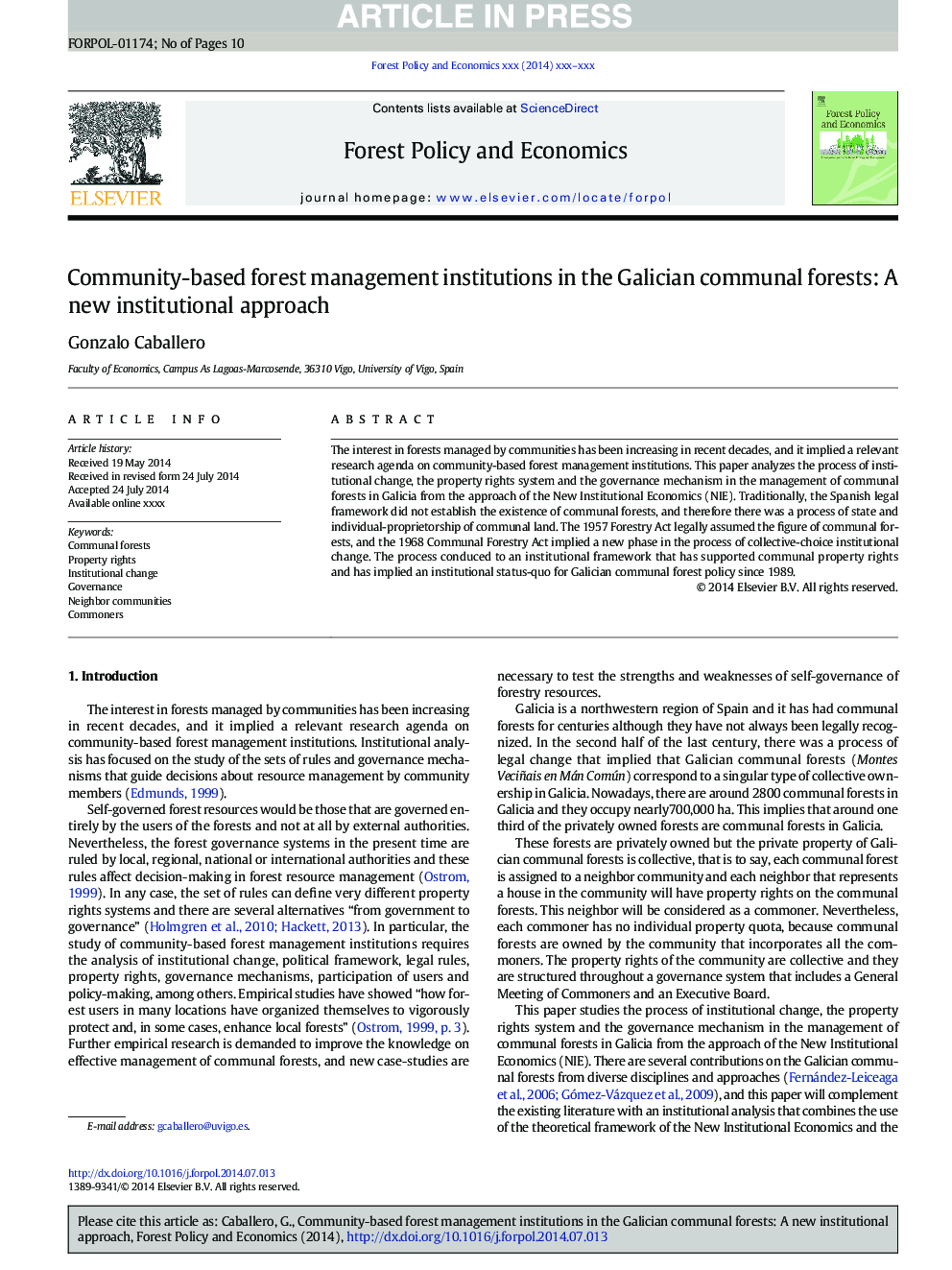| Article ID | Journal | Published Year | Pages | File Type |
|---|---|---|---|---|
| 6544960 | Forest Policy and Economics | 2015 | 10 Pages |
Abstract
The interest in forests managed by communities has been increasing in recent decades, and it implied a relevant research agenda on community-based forest management institutions. This paper analyzes the process of institutional change, the property rights system and the governance mechanism in the management of communal forests in Galicia from the approach of the New Institutional Economics (NIE). Traditionally, the Spanish legal framework did not establish the existence of communal forests, and therefore there was a process of state and individual-proprietorship of communal land. The 1957 Forestry Act legally assumed the figure of communal forests, and the 1968 Communal Forestry Act implied a new phase in the process of collective-choice institutional change. The process conduced to an institutional framework that has supported communal property rights and has implied an institutional status-quo for Galician communal forest policy since 1989.
Related Topics
Life Sciences
Agricultural and Biological Sciences
Forestry
Authors
Gonzalo Caballero,
